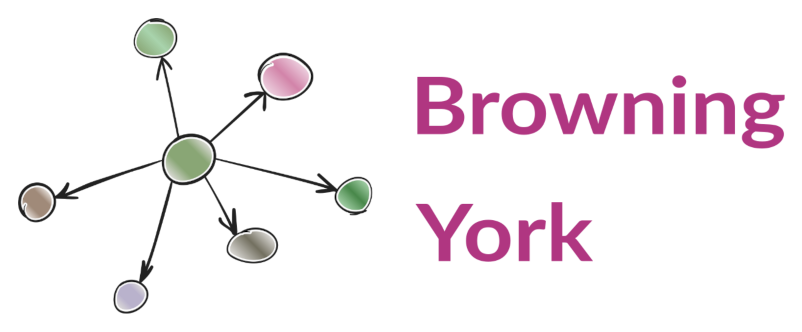 Yesterday was a big day for me – my 40th birthday! To celebrate the occasion, I have decided to write today about 4 communication lessons I have learnt during my 4 decades. (Don’t worry, I’ve also eaten cake, drunk champagne and spent lots of time with my lovely family and friends to celebrate – it’s not all work, work, work!)
Yesterday was a big day for me – my 40th birthday! To celebrate the occasion, I have decided to write today about 4 communication lessons I have learnt during my 4 decades. (Don’t worry, I’ve also eaten cake, drunk champagne and spent lots of time with my lovely family and friends to celebrate – it’s not all work, work, work!)
Communication isn’t actually rocket science. It’s something we have all been doing since we were babies – many studies have shown how even new born babies start to communicate with their parents through eye contact and touch, way before verbal communication gets a look-in. So if I have been communicating with others around me for the past 40 years, what are the main things that I have learnt?
Words matter
Ever since my mum used to give me story titles to write when I was a kid, I have loved writing. The process of putting words on paper, and now on a screen, is so much fun. One of the things that I love most about it, is that by simply changing one or two words, you can change the whole meaning or feeling of a sentence. For example, a well-timed ‘and’ or ‘but’ can make all the difference:
“She loves singing.” “Yes, and she’s started playing the piano.”
“She loves singing.” “Yes, but she’s started playing the piano.”
In the first sentences we had someone who was a singer and a piano player and in the second set it seems she only plays the piano, despite her love for singing.
Words matter in organisational communications as well. I once discovered that an entire site of employees had decided that the in-house magazine wasn’t up to much and didn’t read it, because there had once been an article where a manager had described his team as being split ‘roughly in half’ – either they are split in half or they’re not. An extreme example, maybe, but words mattered to those people and a lot of work was needed to turn things around.
There is no such thing as no communication
Sometimes I work with clients who have not previously had an internal communications role. They tell me that up until now there has been no communication and that’s why they have brought me in. However, whenever you have human beings together in any way, there will be some communication of some sort, as with new born babies and their parents. Just by coming into the office in the morning and saying hello to your colleagues, you have are communicating. And actually, even if you don’t say hello, you are communicating something too – perhaps that you aren’t very friendly or that you’ve had a nightmare commute and need some caffeine.
A phrase that I often find myself using, and that usually strikes a chord, is that you are communicating even when you’re not ‘communicating’. This is particularly true for managers who may feel that they haven’t communicated with their team about the board meeting they just attended because they haven’t held a team meeting yet – but their team will be watching them and picking up clues from their body language and conversations, so they are communicating something.
A little planning goes a long way
It is possible to communicate without thinking it through first, but it doesn’t feel comfortable and you don’t know where you will end up. Before you know it, you’ve said something you didn’t mean, made a promise you can’t keep or put your foot in it with your audience. We’ve all had conversations like that, especially with family and friends, and maybe in a personal situation that’s more likely to happen. But with workplace communication, you will usually have more opportunity to plan ahead. Even if you don’t have much time to plan, it can make a real difference to quickly think through what you’re trying to achieve, what you know about your audience’s likes and dislikes and what are the key things you want to say. The communications planning tool I use with my clients makes it so much easier to do that, by taking them through a step-by-step process that you can apply quickly for small things and take longer with for project communications.
It’s not about you
Effective communication is not about you – without understanding of your audience and matching what you’re trying to achieve with their interests and motivations, you will not be successful. Taking this lesson on board can be especially challenging. We all believe that our point of view is valid, our project is the most important thing happening right now or simply that we know best. And sometimes we’re right. But even when we are, listening to others’ perspectives and concerns and adapting the way we communicate accordingly is the only way we can get our message across effectively.
A few years ago I worked with a small, user-led organisation to write a Big Lottery Awards for All funding application. They offered some amazing services to their clients and were keen to show the Big Lottery funders how much they did. But actually, amazing as they were, funders are only interested in the things that they fund and the impact they have. In the end, by keeping our purpose in mind (securing funding for a new service) and writing the application to demonstrate the priorities of the funder (the impact of the new service on the community), I helped them successfully secure £10,000.
So there you have it, the ‘wisdom’ of my years. If you are facing any of these challenges in your organisation and would like to talk through ways in which I can help you with them, please do get in touch.
Until next time
Sarah
